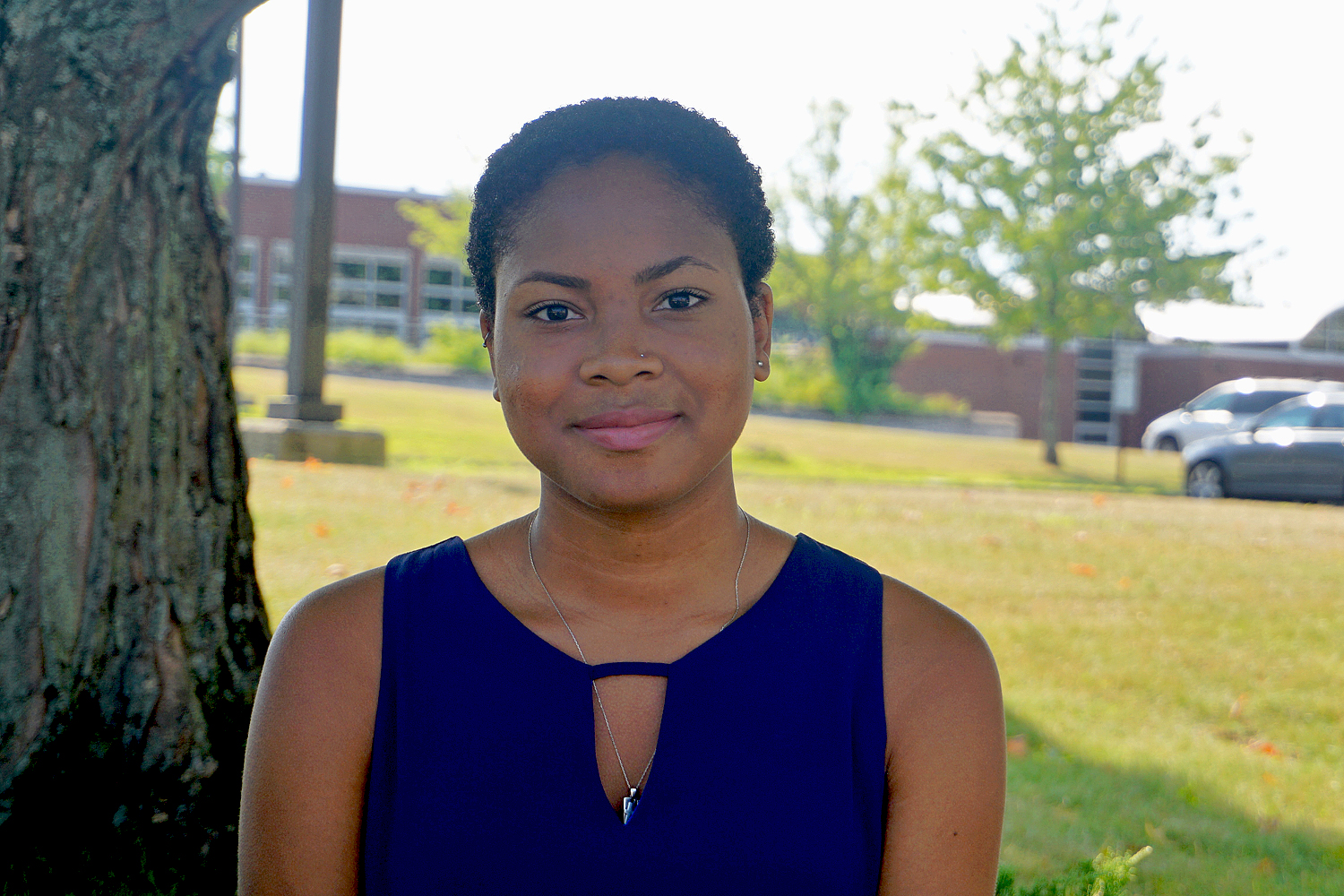When Danielle Russell was still in grade school, she spent many weeknights on the couch in front of the television in her Hartford home, next to her grandfather, who spent the entire broadcast yelling at the anchor on Fox News.
Watching him, she admired his passion, but didn’t understand how he could disagree with absolutely everything someone had to say.
“Grandpa, why are you torturing yourself?,” she’d say. “Why would you turn on the TV just to argue with everything this person is saying?”
Her grandfather would grumble something back to her and return to yelling at the news anchor.
It was by asking these types of questions and having political conversations with her grandfather and father as a constant companion that got her interested in studying political science. Now, Russell is asking questions about cross-cultural communication and how changes in perspective can influence understanding, as it pertains to an individual’s political views.
Russell explained her interest with a simple analogy.
“So there’s an elephant,” she said. “Fox News is reporting on one side of the elephant, while NPR, is reporting on a different part of the elephant. Democrats and Republicans can never fundamentally agree because they see things differently, and watching that media becomes just a feedback loop. They’re telling you what you want to hear, and they validate what you already think from your own perspective. I feel like that’s why we’re so divided.”
When Russell came to Uconn, she was inspired by discussions like these in Associate Professor of Political Science Shayla Nunnally’s class, African American Politics, where they discussed race, ethnic politics, and the common misconceptions people have regarding these issues.
Russell approached Nunnally and Associate Professor of Political Science Evelyn Simien to talk about getting involved in research. Nunnally urged her to apply for the Ralph Bunche Summer Institute at Duke University.
Named for Ralph. J. Bunche, the first African-American to earn a Ph.D. in political science, the rigorous program accepts just 15 students from across the country, and consists of two graduate courses, guest speakers, and an in-depth research paper on a topic of the student’s choice.
The Institute encourages students to pursue academic careers in political science by enhancing writing, research, and analytical skills; exposing participants to big questions in political science; and introducing participants to leading political scientists.
Starting at nine a.m. the students attended a two-hour lecture, went to their classes, and listened guest speakers and activities until eight p.m., when they would begin their homework and write their papers.
Russell attended two graduate-level courses: Race and Ethnic Politics and a research methodology course that would help them write their research papers. At an accelerated rate, the students learned how to pull out and recode data, graph data, and perform in-depth data analysis.
Russell wrote her paper about how racial resentment, which, she explained, is a subtle bias individuals feel towards other races than can impact how they feel about policies associated with those groups.
In her paper, Russell looked at how different groups viewed the Affordable Care Act to see if there was a hierarchy in levels of racial resentment towards that policy. Her work helps to show that racial hierarchies exist in political culture.
“I didn’t just look at the white population, but I looked at how it affected Asian Americans, Latino Americans, and Black Americans to see how racial resentment affected their views on the Affordable Care Act,” Russell said. “White individuals are less likely to support the Affirmative action if they are more racially resentful, followed by Asian Americans, and Latinos, then blacks. I aimed to prove in my paper that that there are racial biases to how people vote on policies that have been racialized.”
One day during the program, one of Russell’s colleagues suggested they all go to the computer lab to screen a movie and then write their papers. They ended up staying awake until the sun came up and finishing their papers very close to the deadline and walking back to their dorm at eight o’clock in the morning, all of them delirious.
“It was tiring and exhausting,” Russell said. “I remember thinking when it was done ‘wow I can’t believe I pulled that off!’”
This fall, Russell will go abroad to attend University College Dublin and help further her interest in international politics. When she returns from Ireland in the spring, Russell intends to apply for more research internships, and she hopes to move to China post-graduation, where she can use the four years of Chinese she took in high school.
“For me, to immerse myself in the culture and become fluent, I need to move there. I’ve always been the type of person who believed in cultural immersion as a means of understanding a different perspective.”
After attending the Bunche program, Russell realized that she didn’t just want to study American politics, but comparative politics between countries. This interest in how different systems interact with or react to policy drives her research. Russell said that going abroad will help her view policies and issues from a different perspective and lessen her American biases.
“When you have conversations with people [from other cultures] you can kind of uncover their world views and connect to them on a genuine level,” Russell said.



